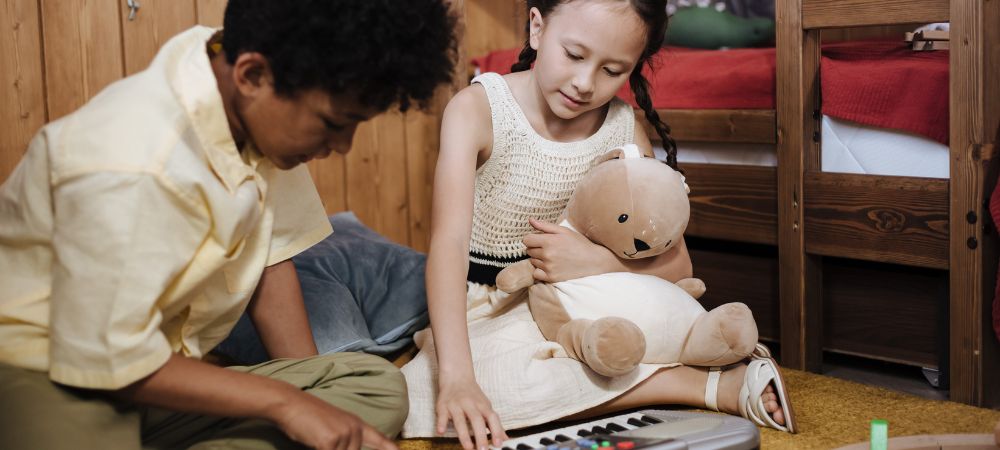

Tailored care for individuals with dementia be very crucial in specialized programs and activities. To read more click that. When a person has dementia, they need unique help and support to meet their specific needs. It's not enough to provide generic care or activities - it must be personalized to the individual. Without tailored care, patients may become frustrated, anxious, or withdrawn.
Dementia is a complex condition that affects each person differently. What works for one patient may not work for another. That's why it's so important to take the time to get to know each individual and understand their preferences, interests, and abilities. By tailoring care to the individual, we can help them feel more comfortable, engaged, and connected.
When we neglect to provide tailored care for individuals with dementia, we run the risk of causing harm or distress. Patients may feel overwhelmed by activities that are too challenging or bored by activities that are too simple. They may also struggle with tasks that they used to do easily but now find difficult due to their condition.
In conclusion, providing tailored care for individuals with dementia is essential in specialized programs and activities. By taking the time to understand each person's unique needs and abilities, we can help them live more fulfilling lives despite their condition. Let's make sure we always prioritize personalized care for those who need it most!
Engaging in specialized programs and activities for dementia patients can have many benefits. These programs help to stimulate the brain and keep it active, which can slow down the progression of the disease. They also provide social interaction and a sense of community, which can improve mood and overall well-being. Without these programs, patients may feel isolated and lonely, leading to a decline in mental health.
Participating in activities such as music therapy, art classes, or memory games can bring joy and a sense of accomplishment to dementia patients. It gives them something to look forward to and helps them maintain their cognitive abilities for longer. Without these opportunities, patients may become bored and restless, increasing agitation and challenging behaviors.
Specialized programs also offer support for caregivers, giving them a break from their responsibilities and allowing them to connect with others who understand what they are going through. Without this support, caregivers may experience burnout and struggle to provide quality care for their loved ones with dementia.
In conclusion, engaging in specialized programs and activities for dementia patients is crucial for maintaining their quality of life. These programs offer stimulation, socialization, and support that are essential for managing the challenges of living with dementia. Without them, both patients and caregivers may face greater difficulties in coping with the disease.
Regularly monitoring and followin' up to track progress and adjustin' strategies as needed is crucial in preventin' falls and maintainin' physical mobility in the elderly population.. It's important to stay on top of things and make sure we're makin' progress towards our goals.

Posted by on 2024-05-08
There are many diff'rent types of specialized programs available for dementia patients that can help improve their quality of life. Music therapy, art therapy, n' memory games are just some examples of wha' is out there to assist those with dementia.
Music therapy can be a great way to engage with patients who may struggle with communication. It can evoke emotions, memories, 'n stimulate the brain in ways that other therapies may not be able to do. Art therapy is another option that allows patients to express themselves creatively without the need for words.
Memory games can be fun 'n beneficial for those with dementia as they help exercise the brain 'n improve cognitive function. These activities can also provide a sense of accomplishment n' boost confidence in patients who may otherwise feel frustrated or confused.
Overall, there are plenty of options available for dementia patients to participate in specialized programs 'n activities that can enhance their overall well-being. It's important to explore these opportunities n' find wha' works best for each individual patient.


These programs, they can really make a big difference for dementia patients, ya know? They help to improve cognitive function and quality of life. By engaging in activities like music therapy or art classes, patients can exercise their brains and feel more connected with others. It's amazing how these programs can bring so much joy and stimulation to those struggling with dementia. Without them, it can be really tough for patients to stay engaged and active. So yeah, these specialized programs are essential for improving the well-being of dementia patients and enhancing their overall quality of life.
When choosing a program or activity for a loved one with dementia, there are many important factors to consider. It's not just about finding something that they enjoy, but also something that is safe and appropriate for their condition. You shouldn't just pick any random activity without thinking about how it will benefit them.
One of the first things to think about is the level of cognitive ability your loved one has. You don't want to choose an activity that is too challenging or too easy for them. It's important to find something that will engage their mind and help them feel accomplished.
Another consideration is the physical abilities of your loved one. You should choose activities that are suitable for their level of mobility and strength. It's important to keep them active and moving, but you don't want to push them too hard and risk injury.
It's also important to consider the social aspect of the program or activity. You want your loved one to have opportunities to interact with others and make connections. Socialization can be incredibly beneficial for someone with dementia, as it can help reduce feelings of isolation and improve overall well-being.
In addition, you should consider the environment in which the program takes place. You want to make sure it is safe, comfortable, and welcoming for your loved one. The atmosphere can have a big impact on their experience and how much they enjoy the activity.
Overall, when choosing a program or activity for a loved one with dementia, it's important to take all of these factors into account. By considering their cognitive abilities, physical abilities, social needs, and the environment in which the activity takes place, you can help ensure that they have a positive and fulfilling experience.

Incorporating specialized programs into elder care routines for dementia patients can be a beneficial way to improve their quality of life. These programs offer engaging activities and therapies that can help stimulate cognitive function, improve mood, and promote social interaction among individuals with dementia.
One tip for incorporating specialized programs is to work closely with healthcare professionals who specialize in dementia care. They can provide guidance on the types of activities that may be most beneficial for each individual patient based on their unique needs and preferences. By collaborating with experts in the field, caregivers can ensure that they are providing the best possible care for their loved ones.
Another tip is to gradually introduce new activities into the daily routine. It's important not to overwhelm patients with too many changes at once, as this can cause confusion and frustration. Instead, start small by incorporating simple activities like music therapy or art projects, and gradually increase the complexity as patients become more comfortable.
Additionally, it's important to involve family members and caregivers in the planning and implementation of specialized programs. This can help create a sense of community and support for both patients and caregivers, which can improve overall well-being for everyone involved.
Overall, incorporating specialized programs into elder care routines for dementia patients requires patience, collaboration, and creativity. By following these tips and working closely with healthcare professionals, caregivers can provide meaningful experiences that enhance the lives of those living with dementia.